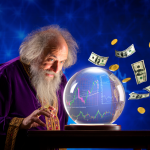What is Hindsight Bias? Understanding Its Impact on
Nov 26, 2024
Hindsight bias, often called the “I-knew-it-all-along” phenomenon, is a cognitive bias that leads individuals to believe they accurately predicted an event’s outcome after it has already occurred. This psychological tendency can have profound implications for decision-making, especially in investing and financial markets. In this article, we will explore the intricacies of hindsight bias, including its origins, manifestations, and potential dangers to investors and decision-makers.
The Nature of Hindsight Bias
Hindsight bias is deeply rooted in human psychology and has been observed across various cultures and contexts. It stems from our brain’s natural tendency to create coherent narratives from past events, often simplifying complex situations and overlooking the uncertainties that existed at the time of the original decision or prediction.
As Niccolò Machiavelli, the renowned Renaissance political philosopher, astutely observed, “Men generally judge more by the eye than by the hand, for everyone can see and few can feel. Everyone sees what you appear to be, but few experience what you are.” This insight captures the essence of hindsight bias – the tendency to judge past events based on their outcomes rather than the circumstances and information available at the time.
The Manifestations of Hindsight Bias in Investing
In the context of financial markets, hindsight bias can manifest in several ways:
1. Overestimation of Predictability: Investors may believe that market movements or company performances were more predictable than they were at the time.
2. Memory Distortion: Recollections of past investment decisions may be altered to align with subsequent outcomes, leading to a false sense of foresight.
3. Oversimplification of Complex Events: The multifaceted nature of market dynamics may be reduced to simple, linear narratives that seem obvious in retrospect.
4. Underestimation of Uncertainty: The uncertainty level during decision-making is often forgotten or minimized in hindsight.
The Dangers of Hindsight Bias
1. Overconfidence
Perhaps the most significant danger of hindsight bias is the overconfidence it can instil in investors. As the French Enlightenment writer and philosopher Voltaire wisely cautioned, “Doubt is not a pleasant condition, but certainty is absurd.” When investors believe they accurately predicted past market movements, they may become overly confident in their ability to forecast future trends. This overconfidence can lead to excessive risk-taking and poor decision-making.
Example: Consider the dot-com bubble of the late 1990s. In hindsight, many investors claim they “knew” the bubble would burst. However, at the time, the prevailing sentiment was unbridled optimism. Those who succumb to hindsight bias might overestimate their ability to predict future market bubbles, potentially leading to costly mistakes.
2. Failure to Learn from Mistakes
Hindsight bias can prevent investors from learning valuable lessons from past experiences. If one believes they “knew it all along,” there’s little incentive to analyze what went wrong or right in a particular investment decision.
Charlie Munger, vice chairman of Berkshire Hathaway and long-time business partner of Warren Buffett, emphasizes, “I think it is undeniably true that the human brain must work in models. The trick is to have your brain work better than the other person’s brain because it understands the most fundamental models: ones that will do the most work per unit.”
3. Impaired Risk Assessment
Hindsight bias can lead to a distorted perception of risk. Events that seemed highly uncertain at the time may appear inevitable in retrospect, causing investors to underestimate the proper level of risk in future decisions.
The ancient Greek philosopher Plato warned, “A good decision is based on knowledge, not numbers.” This wisdom underscores the importance of recognizing the limitations of our knowledge and the inherent uncertainties in decision-making.
4. Missed Opportunities
By focusing on what “should have been done” based on hindsight, investors may miss current opportunities or fail to recognize emerging trends that don’t fit their retrospective narrative.
The Rothschild family, known for their financial acumen, built their fortune on being “contrarian when others are greedy and greedy when others are fearful.” This approach requires a clear-eyed assessment of current market conditions, unencumbered by hindsight bias.
Mass Psychology and Hindsight Bias
The impact of hindsight bias is often amplified when viewed through mass psychology. Investors’ collective behaviour in financial markets can create self-fulfilling prophecies and reinforce biased perceptions.
For instance, after a market crash, a collective narrative often emerges about how “obvious” the signs of the impending downturn are. This shared hindsight can influence future market behaviour, potentially leading to overreactions to perceived similarities with past events.
As Jakob Fugger, the Renaissance era’s wealthiest and most influential financier, noted, “Make a fortune when the sun shines; make a second fortune when it doesn’t.” This insight highlights the importance of maintaining a balanced perspective in all market conditions rather than being swayed by collective hindsight narratives.
Technical Analysis and Hindsight Bias
Technical analysis, the study of price movements and patterns in financial markets, is particularly susceptible to hindsight bias. Charts and patterns that seem precise and predictive in retrospect may have been far less evident in real time.
For example, a “head and shoulders” pattern in a stock chart may seem glaringly apparent after a significant price movement. However, identifying such real-time patterns amidst market noise and uncertainty is far more challenging.
Recognizing and Mitigating Hindsight Bias
1. Keep Detailed Records
Maintaining a comprehensive investment journal that documents decision-making processes, available information, and market conditions at each investment can help combat hindsight bias. By referring to these records, investors can gain a more accurate perspective on their past decisions.
2. Embrace Uncertainty
Acknowledging the inherent uncertainty in financial markets is crucial. As Voltaire aptly said, “Doubt is uncomfortable, but certainty is ridiculous.” By maintaining a healthy scepticism about one’s predictive abilities, investors can make more balanced decisions.
3. Consider Alternative Outcomes
When analyzing past events, consider alternative outcomes that could have occurred given the information available. This exercise can help highlight the role of chance and unpredictability in market movements.
4. Seek Diverse Perspectives
Engaging with various viewpoints and analyses can provide a more balanced view of market events and reduce the impact of individual biases. As Plato advised, “Knowledge is the food of the soul.” Diverse knowledge sources can nourish a more robust and less biased investment approach.
5. Use Probabilistic Thinking
Instead of thinking in terms of absolute predictions, adopt a probabilistic mindset. Recognize that multiple outcomes are possible and assign probabilities to different scenarios.
6. Regular Self-Assessment
Periodically evaluate your investment decisions and thought processes. As Charlie Munger suggests, “I think it’s a huge mistake not to absorb elementary, worldly wisdom if you’re capable of doing it because it makes you better able to serve others, it makes you better able to serve yourself, and it makes life more fun.”
Conclusion: The Value of Clear-Eyed Reflection
While hindsight bias is a natural human tendency, it can be a significant obstacle to sound investment decision-making. By recognizing its presence and actively working to mitigate its effects, investors can develop a more nuanced and realistic view of past and future market events.
As we navigate the complex world of financial markets, let us heed Machiavelli’s words: “The wise man does at once what the fool does finally.” In the context of hindsight bias, this wisdom encourages us to approach our analysis of past events with honesty and humility, recognizing the limitations of our foresight and the role of uncertainty in shaping outcomes.
By cultivating a clear-eyed perspective that resists the allure of hindsight bias, investors can make more informed decisions, learn more effectively from past experiences, and navigate the unpredictable waters of the financial markets with more excellent skill and confidence. In doing so, they protect themselves from the dangers of overconfidence and missed opportunities and position themselves to capitalize on the ever-changing landscape of investment possibilities.











